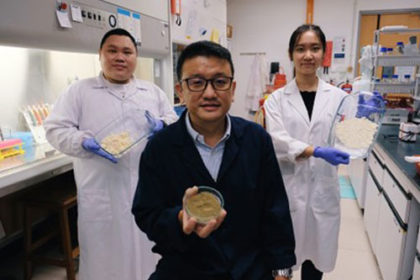
The food industry is at the center of multiple bottlenecks hurting food production – global food crisis, extreme weather, supply chain disruption, inflation and geopolitical conflict. Researchers at Singapore’s prestigious Nanyang Technological University (NTU) have found a sustainable food solution: fermentation.
An article in New Food Magazine details the fermentation innovations of NTU and how they’re fermenting the edible by-products of food manufacturing to produce new food. Their food studies found great promise in okara (the “insoluble remains of soybeans from the production of soy milk and beancurd”) and spent grain (the “residual barley pulp from the beer industry”).
“Fermentation is a way to repurpose okara, a major food manufacturing side stream that is often discarded, and transform it into a highly nutritious food,” says Dr. Ken Lee (pictured), senior lecturer at NTU’s School of Chemistry, Chemical Engineering and Biotechnology, who led a study published in LWT – Food Science and Technology.
The study showed okara fermented with a mixed culture of the fungus Aspergillus oryzae and the bacterium Bacillus subtilis made a nutritional-rich food. This inoculated fermentation process is also used to make soy sauce.
Fermenting spent grain also makes a nutrient-rich, upcycled food: a protein-rich food emulsifier. A separate study by NTU researchers published in Food Chemistry found that plant-based food can replace dairy and eggs in condiments like mayonnaise, dressings and whipped cream.
“Upcycling food waste such as spent grain for human consumption is an opportunity for enhancing processing efficiency in the food supply chain, as well as potentially promoting a healthier plant-based protein alternative to enrich diets,” says Professor William Chen, professor and director of NTU’s Food Science and Technology Programme.
Read more (New Food Magazine)
